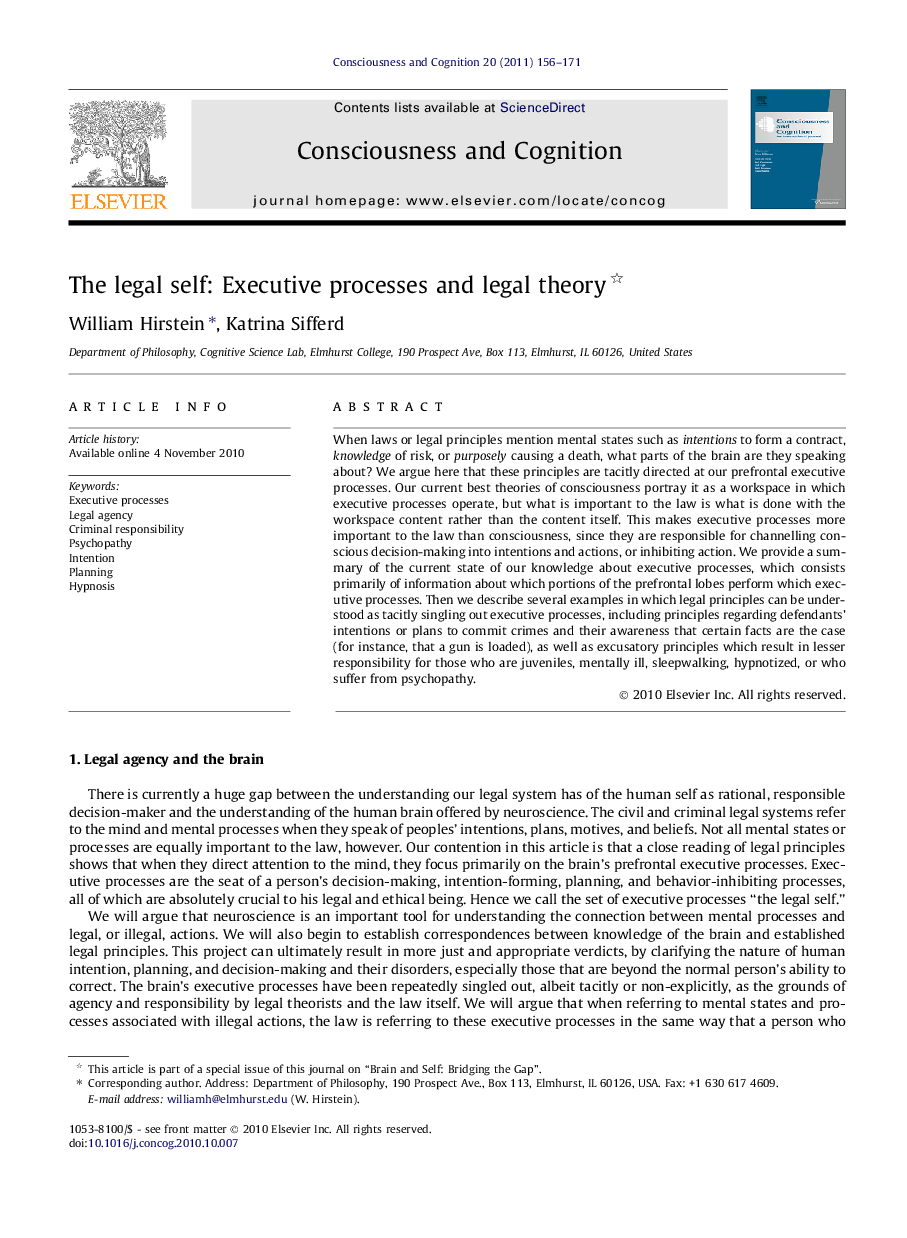| کد مقاله | کد نشریه | سال انتشار | مقاله انگلیسی | نسخه تمام متن |
|---|---|---|---|---|
| 927690 | 922272 | 2011 | 16 صفحه PDF | دانلود رایگان |

When laws or legal principles mention mental states such as intentions to form a contract, knowledge of risk, or purposely causing a death, what parts of the brain are they speaking about? We argue here that these principles are tacitly directed at our prefrontal executive processes. Our current best theories of consciousness portray it as a workspace in which executive processes operate, but what is important to the law is what is done with the workspace content rather than the content itself. This makes executive processes more important to the law than consciousness, since they are responsible for channelling conscious decision-making into intentions and actions, or inhibiting action. We provide a summary of the current state of our knowledge about executive processes, which consists primarily of information about which portions of the prefrontal lobes perform which executive processes. Then we describe several examples in which legal principles can be understood as tacitly singling out executive processes, including principles regarding defendants’ intentions or plans to commit crimes and their awareness that certain facts are the case (for instance, that a gun is loaded), as well as excusatory principles which result in lesser responsibility for those who are juveniles, mentally ill, sleepwalking, hypnotized, or who suffer from psychopathy.
Journal: Consciousness and Cognition - Volume 20, Issue 1, March 2011, Pages 156–171